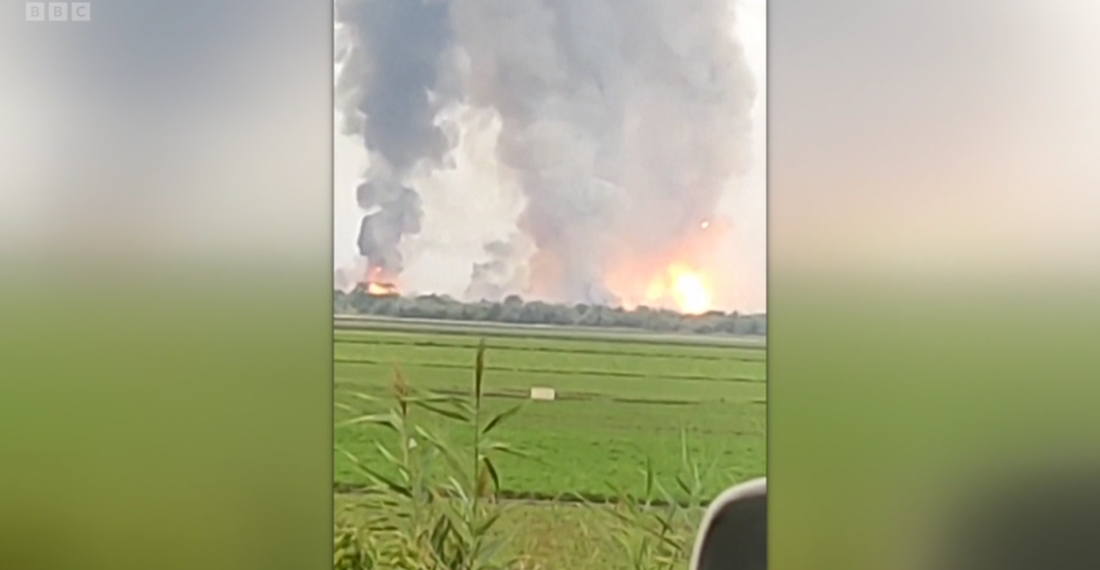One week after an apparent Ukrainian attack on the Saky air base in Russian-occupied Crimea, an arms store at another depot in the Dzhankoi area has been hit by a series of explosions. A separate fire also broke out at a power substation and a railway was damaged.
The Russia-appointed regional head Sergei Aksyonov has declared an “emergency situation” in the area. This differs from a “state of emergency”, which can only be declared by the Russian President and can entail significant restrictions on people’s freedoms and rights.
Initially saying that a fire had triggered the blasts in northern Crimea, Russian occupying officials later blamed “sabotage”. Ukrainian presidential office adviser Mykhailo Podolyak cryptically described the latest incident as “demilitarisation in action” in a tweet.
The Russian defence ministry said that the fire broke out at a temporary ammunition storage near the village of Maiske at around 06:15 Moscow time (03.15 GMT). Sergei Aksyonov said that 2,000 people had been evacuated to a nearby village and two people had been wounded.
Andrew MacLeod, a visiting professor in conflict and security at King’s College London told the BBC, "it really does confirm that the Russians are vulnerable everywhere in Crimea…so if I was a Russian soldier or a Russian senior officer on Crimea right now I’d be very worried."
Since this morning’s (Tuesday 16 August) explosions at the arms depot, videos have emerged on social media appearing to show large queues of people at Simferopol train station wanting to leave Crimea. Local media are also reporting that the Crimean Bridge is experiencing record traffic numbers as people scramble to leave. This mirrors events following last week’s strike on the Saky air base, after which enormous traffic jams of Russians fleeing Crimea via the bridge over the Kerch Strait were reported.






